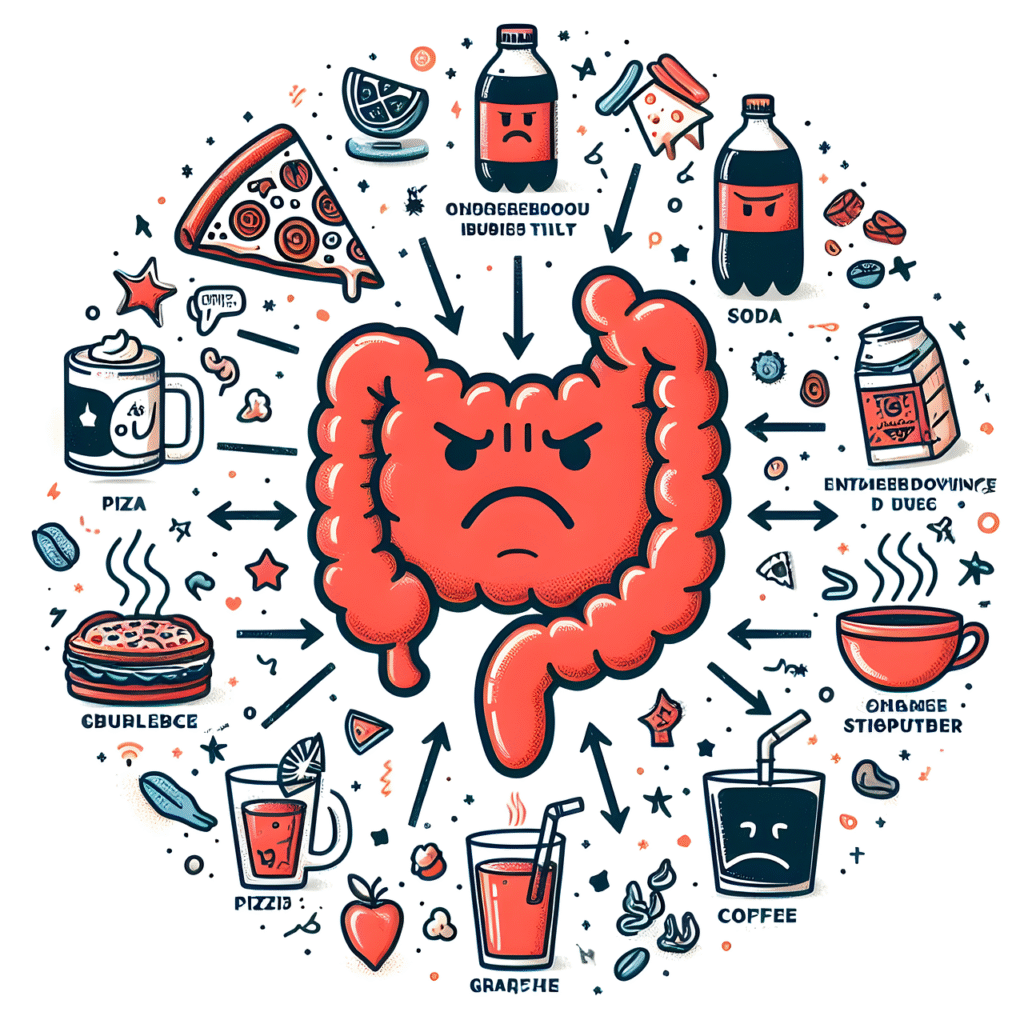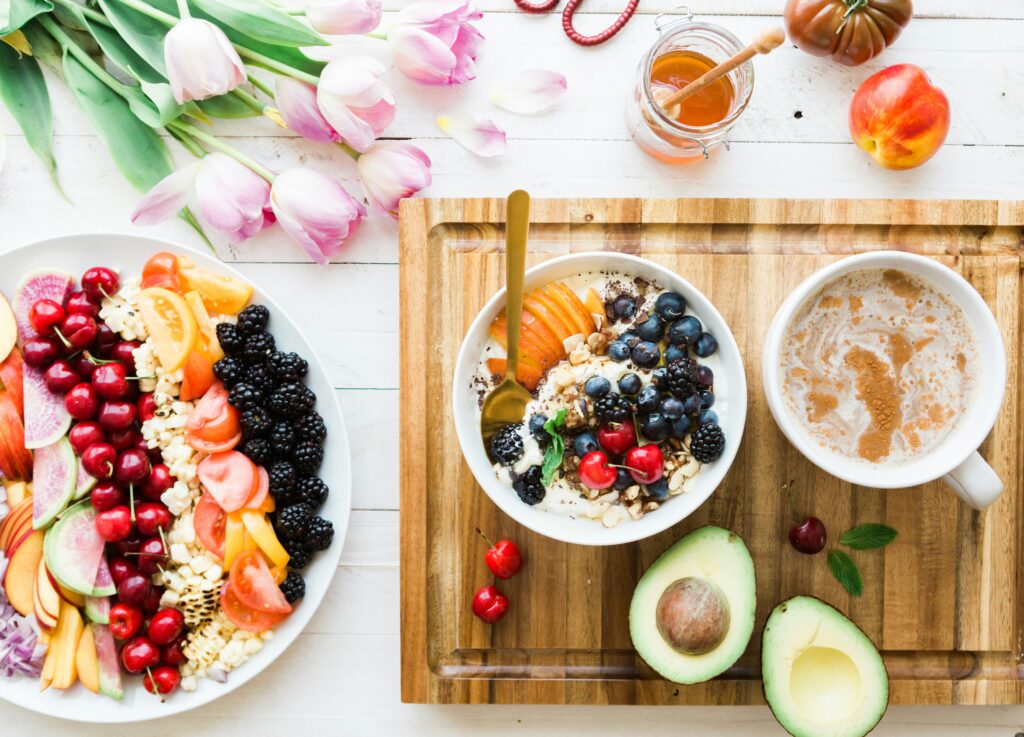Understanding Gut Health: Why It Matters

Your gut is more than just a digestive organ—it’s the command center of your overall health. Often called the “second brain,” the gut is home to trillions of microbes that influence everything from your digestion to your mood.
A healthy gut keeps your immune system strong, helps you absorb nutrients better, and even plays a role in regulating your emotions and weight. But when your gut is out of balance, the consequences can show up as frequent illness, skin breakouts, fatigue, and more.
The Microbiome Explained
The gut microbiome is a bustling community of bacteria, fungi, and viruses living inside your intestines. These microorganisms help break down food, regulate your metabolism, and defend against harmful invaders.
There are good bacteria like Lactobacillus and Bifidobacterium that keep your gut thriving. But when bad bacteria outnumber the good ones—a condition called dysbiosis—digestive and immune problems begin to emerge.
Probiotics and Their Role in Gut Health
Probiotics are the superheroes of gut health. They are live microorganisms that, when consumed in adequate amounts, provide numerous health benefits.
They work by:
- Restoring microbial balance after antibiotic use
- Reducing inflammation in the gut
- Enhancing nutrient absorption
- Supporting immune cell activity
Many studies have shown that probiotic-rich diets can alleviate symptoms of IBS, diarrhea, and even anxiety.
Best Probiotic Foods to Improve Digestion
Here’s a delicious list of probiotic-packed foods to add to your diet:
| Food | Probiotic Strains | Benefits |
| Yogurt (with live cultures) | Lactobacillus, Bifidobacterium | Boosts digestion, improves lactose tolerance |
| Kefir | Multiple strains | Higher probiotic count than yogurt |
| Kimchi | Lactobacillus kimchii | Anti-inflammatory and antioxidant effects |
| Sauerkraut | Leuconostoc, Pediococcus | Aids digestion, boosts immunity |
| Miso & Tempeh | Bacillus subtilis | Great for gut and heart health |
| Kombucha | Acetobacter, Gluconobacter | Detoxifies and improves gut lining |
| Pickles (naturally fermented) | Lactobacillus plantarum | Enhances gut flora and reduces bloating |
Choose unpasteurized and naturally fermented options for the best benefits.
Prebiotics vs. Probiotics: What’s the Difference?
While probiotics are live bacteria, prebiotics are the food they eat. Prebiotics are non-digestible fibers that fuel the growth of beneficial microbes in your gut.
Top prebiotic-rich foods include:
- Garlic
- Onions
- Bananas (especially green ones)
- Chicory root
- Asparagus
- Oats
- Apples
For optimal gut health, aim to include both prebiotics and probiotics daily—a symbiotic relationship that supercharges your digestion and immunity.
Signs of an Unhealthy Gut
When your gut isn’t happy, your whole body feels the effects. Some common red flags of poor gut health include:
1. Digestive Issues
- Bloating
- Gas
- Constipation
- Diarrhea
These are often the first signs that your microbiome is out of balance.
2. Weakened Immunity
If you catch colds easily or feel tired all the time, your gut might be failing to support your immune system.
3. Skin Conditions
Acne, eczema, and rosacea can stem from gut-related inflammation and food sensitivities.
4. Food Intolerances
When the gut lining is compromised, your body may react to foods it once tolerated—especially dairy, gluten, and sugar.
How to Naturally Improve Gut Health
Healing your gut doesn’t require magic—just a shift in daily habits.

🥗 Eat a Diverse Range of Whole Foods
The more variety in your diet, the more diverse your gut flora becomes.
🌾 Add More Fiber
Fiber-rich foods like lentils, chia seeds, and whole grains act as prebiotics and help regulate digestion.
💧 Stay Hydrated
Water supports the mucosal lining in the gut and assists with nutrient absorption.
🧘 Manage Stress
Chronic stress alters gut flora and increases inflammation. Meditation, yoga, and deep breathing can help calm both your brain and your gut.
😴 Prioritize Sleep
Good sleep helps regulate the gut microbiome. Aim for at least 7-8 hours a night.
Gut Health and Immunity Connection
Did you know about 70% of your immune cells live in your gut?
Here’s how the gut-immune system works together:
- Gut lining acts as a barrier that blocks harmful pathogens.
- Gut microbes communicate with immune cells, training them to fight viruses and bacteria.
- Short-chain fatty acids (SCFAs) produced by healthy bacteria reduce inflammation and increase immunity.
A diverse and well-fed microbiome strengthens the body’s defense mechanisms, reducing the risk of allergies, infections, and autoimmune disorders.
Foods That Hurt Gut Health
Just as some foods heal, others harm. Avoid or minimize:
- Processed foods – Full of preservatives and additives that disrupt gut bacteria.
- Refined sugars – Feed harmful bacteria and cause inflammation.
- Alcohol – Damages gut lining and promotes leaky gut.
- Artificial sweeteners – Especially aspartame and sucralose, which can kill off good bacteria.
Supplements for Gut Health
While whole foods should be your first choice, supplements can help when needed.
When to Consider Them:
- After antibiotics
- For IBS, Crohn’s, or chronic bloating
- When your diet lacks diversity
What to Look For:
- High CFU count (10+ billion)
- Multiple strains
- Shelf-stable or refrigerated
- Enteric-coated capsules (for survival through stomach acid)
Popular strains include Lactobacillus acidophilus, Bifidobacterium lactis, and Saccharomyces boulardii.
Creating a Gut-Friendly Daily Routine
To maintain optimal gut health, try this simple daily routine:
| Time of Day | Activity |
| Morning | Drink warm lemon water with chia seeds |
| Breakfast | Include Greek yogurt, kefir, or oats with banana |
| Mid-Morning | Take a walk or stretch to get your gut moving |
| Lunch | Eat a fiber-rich salad with fermented veggies |
| Afternoon | Stay hydrated and enjoy green tea or kombucha |
| Dinner | Include prebiotic foods like garlic, onions, and legumes |
| Night | Wind down with meditation or journaling |
Kids and Gut Health: A Growing Concern
Children are especially vulnerable to gut imbalances. Frequent antibiotic use, poor diet, and processed snacks can harm their developing microbiome.
Gut-Friendly Tips for Kids:
- Introduce fermented foods early (e.g., yogurt, idli, dosa)
- Encourage outdoor play and exposure to nature
- Limit sugary snacks and sodas
Supporting a healthy gut in childhood builds a strong immune system for life.
Gut Health and Mental Well-Being
The gut-brain axis is a powerful two-way communication system.
Fun Fact:
About 90% of serotonin (your happy hormone) is produced in your gut!
When your gut is balanced, you may experience:
- Reduced anxiety and depression
- Better focus and memory
- Improved sleep
Studies have found that people with gut imbalances often report mood swings and mental fog. Supporting the gut can be a game-changer for emotional wellness.
Cultural Wisdom: Gut-Healthy Traditions Around the World
Ancient diets from different cultures have long supported gut health:
- India: Curd, kanji, buttermilk, fermented rice
- Korea: Kimchi with every meal, rich in lactobacilli
- Japan: Miso soup and fermented soy
- Greece/Italy: Mediterranean diet with olives, yogurt, and lots of fiber
Incorporating these traditional foods can naturally improve gut health without relying on pills.
FAQs About Gut Health and Probiotics
1. How long does it take to heal the gut?
It varies. Most people notice improvements in 3–4 weeks with consistent diet and lifestyle changes.
2. Can I take probiotics every day?
Yes, daily intake is safe and often recommended, especially if you’re not getting them from food.
3. Do antibiotics kill good bacteria?
Yes, antibiotics can wipe out both harmful and beneficial bacteria. Always follow up with probiotics after a course.
4. Are refrigerated probiotics better?
Some strains require refrigeration, but many shelf-stable versions are just as effective.
5. Can probiotics help with bloating?
Absolutely. Certain strains are clinically shown to reduce bloating and promote regularity.
6. Can children and seniors take probiotics?
Yes! But always consult a pediatrician or physician for appropriate strains and doses.
Conclusion: Embrace the Gut Health Revolution
Your gut is the gateway to vibrant health. By adding probiotic foods, eating more fiber, staying hydrated, managing stress, and avoiding harmful foods, you can revolutionize your health from the inside out.
Start with one change today—add yogurt to breakfast, sip kombucha with lunch, or enjoy kimchi with dinner. Small steps lead to big transformations.
